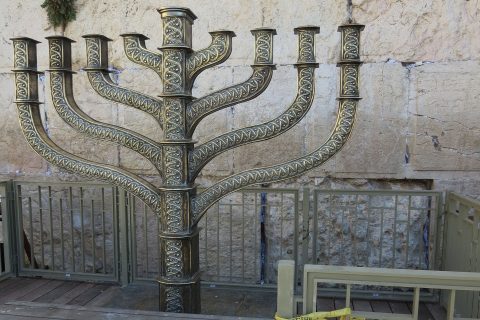Theological Studies (MA)
Program overview
The MA in Theological Studies explores the relationship between religious experience and human society. With the Church operating in an increasingly pluralistic world, Christianity’s role is in constant evolution. Our researchers approach the history of theology with respect while maintaining an eye on the future. As part of the humanities, our program provides an interdisciplinary environment for advanced research by using methodologies present in philosophy, history and languages. Our student body is composed of individuals from a variety of religious and non-religious backgrounds who are interested in questions of faith and spirituality. You’ll join a vibrant community of researchers and faculty members who will encourage you to go beyond established disciplinary boundaries as you examine the roles of theology and belief in a secular era.
Program structure
Degree Requirements
Fully-qualified candidates are required to complete a minimum of 45 credits.
Please see the Theological Studies Courses page for course descriptions.
Theological Studies MA (45 credits)
| 45 | credits chosen from one of the following options: Theological Studies MA Option A: MA with Thesis Theological Studies MA Option B: MA with Applied Project in Theology |
Theological Studies MA Option A: MA with Thesis (45 credits)
| 15 | credits of Required Courses:
|
| 9 | credits of Theology MA Elective Courses |
| 21 | credits:
|
Theological Studies MA Option B: MA with Applied Project in Theology (45 credits)
| 9 | credits of Required Courses:
|
| 18 | credits of Theology MA Elective Courses |
| 18 | credits:
|
Theology MA Elective Courses
| 21 | credits:
|
Admission requirements
Admission Requirements
- Solid undergraduate preparation with a range of competence similar to that demanded of Major students at Concordia, and a minimum B average in their undergraduate studies.
- Proficiency in English. Applicants whose primary language is not English must demonstrate that their knowledge of English is sufficient to pursue graduate studies in their chosen field. Please refer to the English language proficiency page for further information on requirements and exemptions.
- Language Requirements. Thesis proposals which depend on special linguistic skills will be accepted only from students competent in the appropriate languages.
Application process
Application deadlines

FALL
June 1 (Canadian resident)
January 15 (International)

WINTER
November 1 (Canadian resident)
June 1 (International)

SUMMER
n/a
Priority will be given to complete applications submitted by the deadline. In some cases, programs may continue to accept applications as long as there is space available.
International students: Considering the waiting period involved in meeting the entry requirements to Canada and Quebec, we strongly encourage international applicants to apply early and submit supporting documents prior to the deadline.
Tuition & funding
Tuition and fees
Tuition and fees of the program may depend on your student status, among other key factors. Estimate these costs based on the most common situations.
Awards and funding
Funding packages are generally available for students in thesis-based programs. They come in the form of awards, teaching and research assistantships are offered at the time of admission to most students to allow them to focus on their research and studies. Research and thesis-based students are automatically considered for all entrance graduate awards when they apply to Concordia, provided they meet eligibility criteria. No separate application is required.
The Quebec and Canadian governments offer a number of competitive graduate scholarships. We encourage you to apply for these awards at the same time you are preparing your application.
Out-of-province students
Get up to $9,251 in special funding for master's programs. Learn more
Other programs of interest

Examine how religion interacts with today's globalized world through seminars and courses allowing you to explore a variety of religious traditions and emerging subfields based on your research interests.
Department
Department of Religions and Cultures
Faculty

Study alongside expert faculty in combining elements of anthropology, rabbinics, gender and literary studies in developing critical research from the latest materials in Judaic Studies.
Department
Department of Religions and Cultures
Faculty


